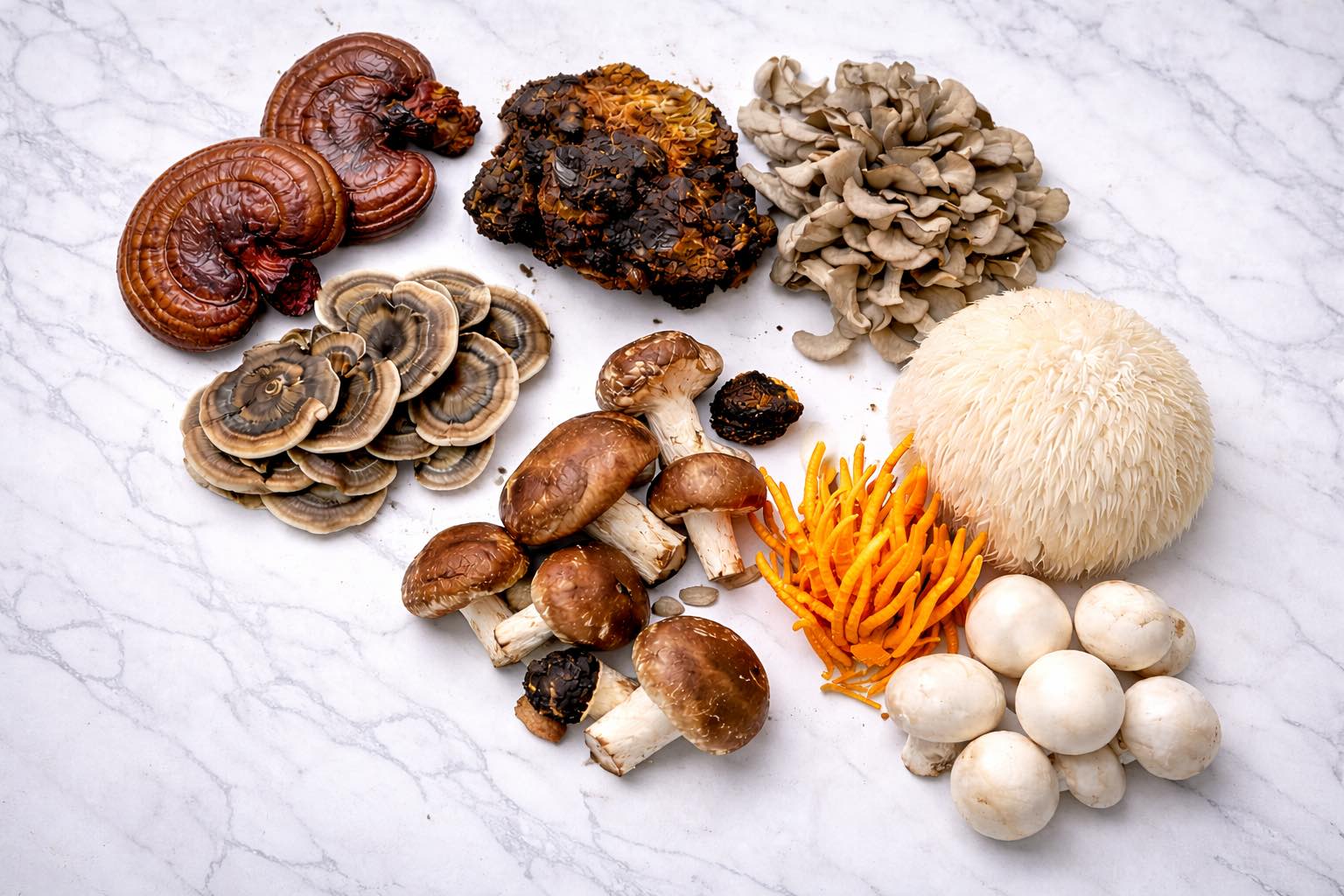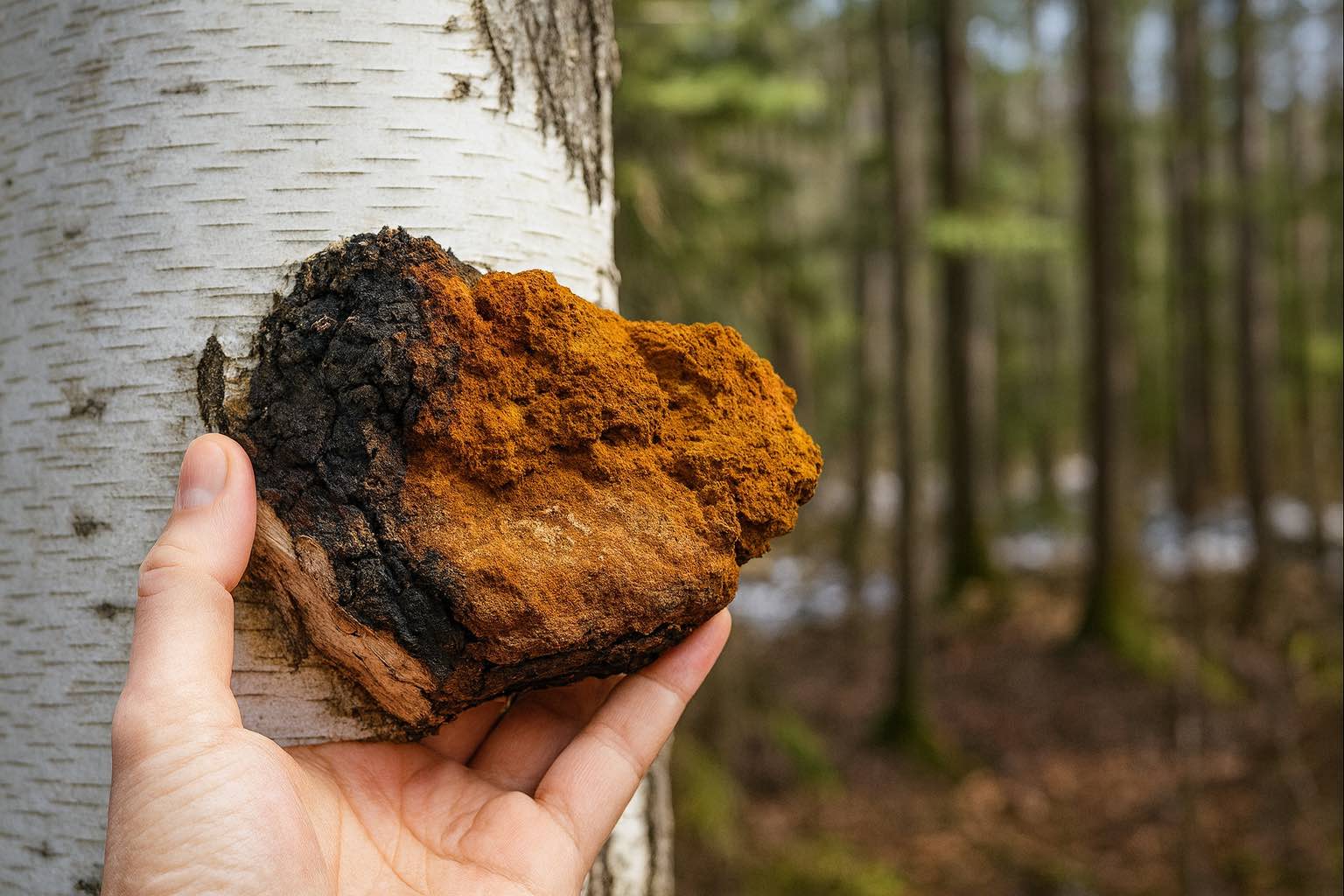Amanita muscaria mushrooms do not contain the hallucinogenic compound known as psilocybin. Instead, Amanita muscaria contains muscimol as its primary active ingredient, along with ibotenic acid and muscarine. These widely unregulated compounds give Amanita distinct psychoactive properties. However, unregulated Amanita extracts may inadvertenly contain psilocybin.
This article investigates Amanita muscaria and the importance of accurate mushroom testing to rule out psilocybin presence.
What is Psilocybin?
Psilocybin is a naturally occurring psychedelic compound found in certain magic mushroom species. Its chemical structure is similar to that of the neurotransmitter serotonin, a brain chemical closely involved with diverse functions like reward, fear response, mood, cognition, and more. Psilocybin’s shape allows it to bind with and activate 5-HT2A serotonin receptors, shifting neural network communication to drastically alter perception, emotions, and visions.
Psilocybin effects
Psilocybin metabolizes into its pharmacologically active form, psilocin, upon ingestion. Both compounds deliver effects similar to LSD, such as:
- Perceptual changes, like halos around objects and geometric patterns
- A sense of inanimate objects and the world breathing
- Vivid colors, tracers, and altered vision
- A distorted sense of time
- Increased introspection and intensity of emotional experiences
Which Mushrooms Contain Psilocybin?
More than 180 species of mushrooms contain psilocybin. The Psilocybe genus is best known for high psilocybin levels and psychedelic properties. Commonly known as “magic mushrooms” or “shrooms,” Psilocybe species usually have light tan to off-white caps of varying sizes and a white to brown stem, sometimes with a bluish tinge.
Some of the most popular Psilocybe mushroom species include:
- Psilocybe cubensis (Gold Caps, Golden Teachers): The most well-known and widely cultivated psilocybin mushroom
- Psilocybe azurescens (Flying Saucer Mushrooms): Noted as the most potent psilocybin mushroom in the world
- Psilocybe semilanceata (Liberty Caps)
Psilocybin legality
The DEA lists psilocybin as a Schedule 1 drug under the 1970 Controlled Substances Act, restricting it at the federal level. However, psilocybin legality has changed in recent years, depending on the location and setting.
- Colorado and Oregon voted to decriminalize psilocybin mushrooms.
- In certain cities, such as Denver, Washington, DC, and Oakland, it is legal to possess and grow magic mushrooms.
- In 2017, the FDA designated psilocybin as a “breakthrough therapy” for depression, loosening some restrictions to allow drug developers and scientists to conduct clinical trials with the compound.
Amanita Muscaria Mushrooms
Amanita muscaria is the iconic red-and-white-speckled mushroom prolific in pop culture. “Fly agaric” is another name for the species due to its fabled ability to attract and kill flies. Amanita mushrooms are relatively toxic when consumed raw, so manufacturers must properly process them to ensure they are safe for consumption.
Key alkaloids in Amanita muscaria
Amanita muscaria mushrooms don’t contain psilocybin or psilocin. Muscimol is the primary alkaloid.
- Muscimol is a potent agonist (activator) of GABA, a neurotransmitter involved in mood regulation and sleep. This mechanism reduces central nervous system activity and delivers sedative and relaxing qualities.
Amanita muscaria mushrooms also contain ibotenic acid and muscarine, compounds that contribute to psychoactive properties but also have toxic qualities.
- Ibotenic acid is a neurotoxic compound in Amanita muscaria and a prodrug to muscimol, meaning it converts to muscimol when someone dries, boils, or ingests the mushroom. Consuming too much ibotenic acid can cause adverse hallucinations, confusion, vomiting, nausea, and seizures in severe cases.
- Muscarine is a natural alkaloid with toxic properties in several wild mushroom species. It occurs in Amanita muscaria in trace amounts but can cause excessive sweating, crying, salivation, and abdominal cramps.
The safest Amanita products contain high muscimol levels and low ibotenic acid and muscarine levels. Mushroom potency testing can help confirm Amanita mushrooms and extracts are safe to ingest.
Consider running a full potency panel to verify your product hits that safe and effective balance. Contact ACS to get started.
Amanita muscaria effects compared to psilocybin
Amanita’s muscimol, ibotenic acid, and muscarine elicit very different effects than psilocybin. Muscimol does not cause the typical “trippy” psychedelic sensations and hallucinations people associate with magic mushrooms. Most often, people experience euphoria and a “dreamlike” state of being, noting effects like:
- Relaxation
- Warm body sensations
- Pain relief
- A sense of peace and tranquility
- Sleepiness
However, muscimol in large doses can cause hallucinations, lucid dreaming, and out-of-body experiences more like psilocybin.
Amanita legality
Unlike psilocybin, Amanita muscaria remains largely unregulated at the federal level. Its active compounds—muscimol, ibotenic acid, and muscarine—are not listed on the DEA’s Controlled Substances Schedule, and only Louisiana currently bans Amanita muscaria product sales.
However, in December 2024, the FDA issued a warning stating that Amanita muscaria and its constituents are not approved for use in food and do not meet the GRAS (Generally Recognized As Safe) standard. While not federally scheduled, these compounds remain under FDA scrutiny, and their inclusion in food or dietary supplements may trigger enforcement action. As a result, many brands market Amanita muscaria extracts, edibles, and powders online as “not for consumption.”
Unregulated Amanita Products
Amanita muscaria products are readily available and enticing to consumers. However, reports have raised safety concerns about certain unregulated products. In some cases, unapproved and harmful compounds have appeared in them, causing health issues.
- For example, some manufacturers call Amanita muscaria products “magic mushroom gummies,” not making it clear that Amanita muscaria is a separate mushroom that doesn’t contain psilocybin.
- The CDC found illegal psilocybin and psilocin in some Amanita muscaria products, along with unlabeled substances, including caffeine, ephedrine, and mitragynine (an opioid agonist found in kratom).
- NPR reported on an ongoing FDA investigation that found muscimol in less than half of recalled Amanita products. Some contained 4-AcO-DMT, a synthetic version of psilocybin.
Testing Amanita Mushrooms with ACS Laboratory
ACS Laboratory’s Amanita muscaria testing panel offers mushroom brands the ultimate solution for confirming that their products meet compliance standards and won’t endanger customers.
- Cutting-edge high-performance liquid chromatography (HPLC) equipment measures Amanita muscaria’s main active ingredients, verifying levels of ibotenic acid, muscimol, and muscarine.
- ACS Laboratory's “negative psilocybin” tests verify that Amanita mushrooms and products are compliant with federal law.
- Full panel purity tests ensure that Amanita products are free from harmful contaminants such as pesticides, heavy metals, and residual solvents used during extraction.
- ACS provides an easy-to-read certificate of analysis (COA) for all Amanita samples via a QR code that documents testing results. This proves compliance with the Controlled Substances Act and gives customers peace of mind.
The Bottom Line
Amanita muscaria mushrooms don’t contain psilocybin. The main active ingredient in the fly agaric is muscimol, which acts as a central nervous system depressant, giving it relaxing, dreamlike effects. Amanita muscaria also contains ibotenic acid and muscarine, which can be toxic at moderate to high levels. However, unregulated products may be adulterated and could potentially contain this compound. Only lab testing can confirm.
Confirm your Amanita products are truly psilocybin-free and safe to ingest with ACS Laboratory’s precision potency testing. Contact us today to get started.









.png)




.png)
.png)
.png)
.png)